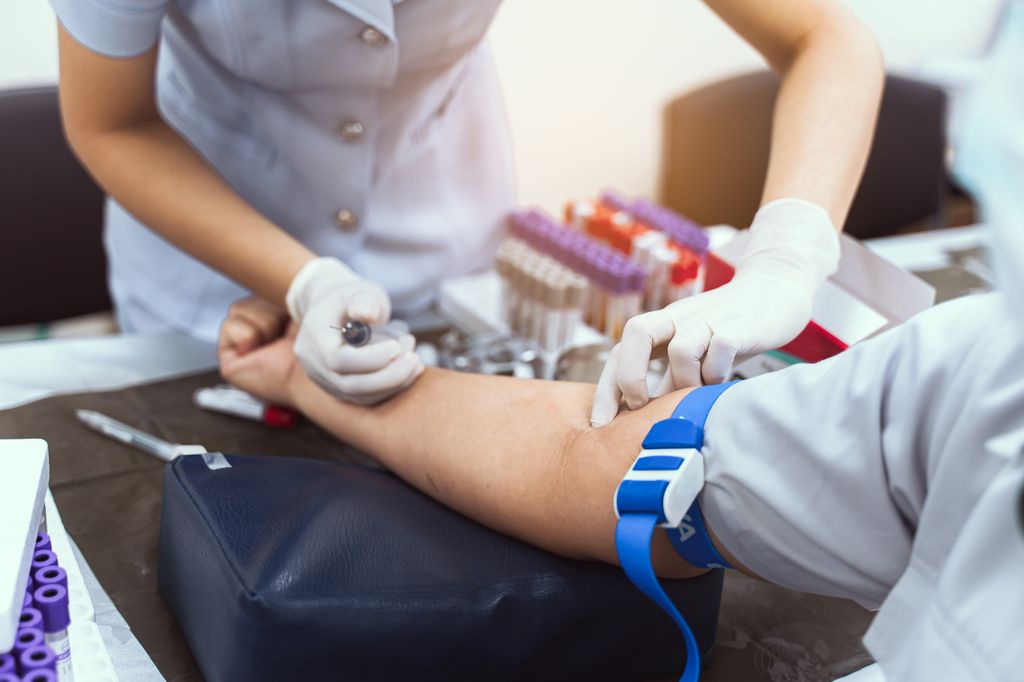Blood tests are often the first port of call for women experiencing perimenopause symptoms, but according to gynecologist Dr. Robin Noble, who is also Chief Medical Advisor for Let's Talk Menopause, blood tests aren't as necessary as you think.
Are blood tests important in menopause?
Dr. Noble explains that while blood tests can be informative, they're not always required when it comes to decisions about looking after yourself in perimenopause.
"Many therapies, including hormone therapy, can be considered as soon as symptoms develop and become bothersome. Oftentimes, testing blood is not needed, as much can be gleaned from listening to someone's individual experience, symptoms, and history."
This personalized approach reflects the complexity of perimenopause, a stage where hormonal levels can fluctuate widely even within a single day. "There is not a standard workup that is indicated—and if this is suggested, I would take it as a warning sign. This is not a cookbook by any stretch," Dr. Noble adds.
When blood tests are helpful in menopause
While blanket recommendations don't apply, there are instances where blood tests or other assessments might provide valuable insights into your perimenopause experience.
"I find looking at your history gives most of the answers I need, but there are times when some blood tests can be necessary or helpful," explains Dr. Noble. For example, bone density testing might be requested in certain situations, particularly for women at higher risk of osteoporosis.
"Individualization is the key," Dr. Noble adds. "Sometimes bone density testing is indicated and can be informative, but many times it is not recommended."
Tailored care is best in perimenopause
Rather than focusing solely on tests, Dr. Noble advises a more holistic approach to perimenopausal care. "We all need to be mindful of where money is well spent and tailoring the care to the individual risk factors, family history and medical history, as well as the individual's goals and desires," she notes.
If you’re experiencing perimenopausal symptoms, Dr. Noble advises to find a healthcare provider who listens carefully to your experiences as they can guide you in determining whether any tests are truly necessary based on your specific situation.
"You may be able to find a provider that specializes in this care and can provide you with everything that you need and the holistic approach you desire, but you also may benefit from being referred to additional specialists if more complicated issues are uncovered like cardiology, pelvic floor personal training, nutrition, and social work to name a few."
For ongoing care, Dr. Noble recommends yearly follow-ups, with shorter intervals if medications have been started or to monitor symptoms and progress. "Again, not a one-size-fits-all approach," she emphasizes.
READ: I suffer from perimenopausal insomnia, but this small but effective fix changed everything
Essential tests and screenings during perimenopause
Dr. Noble insists that some tests are non-negotiable during perimenopause and keeping up-to-date with these routine health screenings is crucial:
- Pap smear screening
- Mammograms
- Lipid profiles
- Blood pressure monitoring
- Diabetes screening
The final piece of advice: trust your gut
"Advocate for yourself: If you feel dismissed or that your concerns are not being taken seriously, find another provider. Your concerns are valid, and you deserve care that feels supportive and individualized."













